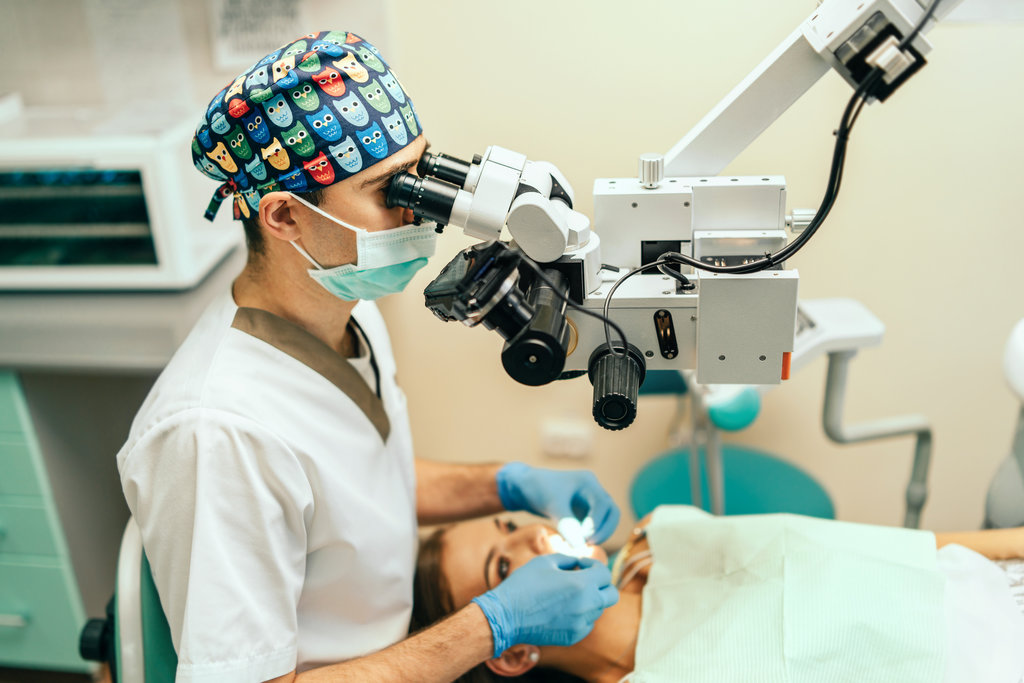
What separates a tooth that can be saved from one that can’t? The answer often surprises patients, as endodontists regularly preserve teeth that appear severely damaged. This specialized assessment process reveals hidden potential in your natural tooth structure.
At Burien Endodontics, Dr. Matthew Tomala and our team combine high-quality, gentle care with cutting-edge technology to deliver exceptional endodontic care. We conduct complete assessments of tooth restorability using state-of-the-art diagnostic imaging and our extensive endodontic training to help patients preserve their natural teeth whenever possible.
The Endodontic Assessment Process
The assessment of tooth restorability begins with a thorough clinical examination and advanced diagnostic imaging. We utilize CBCT scanning technology to create three-dimensional images of your tooth structure, revealing details invisible to conventional X-rays. This advanced imaging allows us to evaluate the internal structure of your tooth, including the root canals, surrounding bone, and any signs of infection or damage.
During your visit, we will take diagnostic images and perform a throrough evaluation of your tooth’s condition. Our 100% digital patient records ensure accurate documentation of all findings, while our localized examination focuses specifically on the affected tooth and surrounding structures. We assess factors such as the extent of decay, the integrity of the tooth structure, and the health of the surrounding tissues to determine the best treatment approach.
The assessment process also includes evaluating your symptoms and medical history to understand how the tooth’s condition affects your daily life. We consider factors such as your age, overall health, and treatment preferences when determining the most appropriate course of action for your specific situation.
Key Factors in Restorability Assessment
Several critical factors influence whether a tooth can be successfully restored through endodontic treatment. The amount of remaining healthy tooth structure plays a vital role in determining restorability, as sufficient structure must remain to support a final restoration. We evaluate the crown-to-root ratio, ensuring adequate root length and stability for long-term success.
The condition of the tooth’s root system requires careful analysis through our advanced imaging technology. We assess for root cracks, fractures, or resorption cases that may compromise the tooth’s structural integrity. The presence and extent of periapical pathology, such as infections or cysts around the root tips, also factor into our restorability evaluation.
Structural Integrity Evaluation
Our assessment includes a detailed examination of the tooth’s structural integrity using specialized diagnostic tools. We evaluate the ferrule effect, which refers to the band of healthy tooth structure that extends above the gum line, providing essential support for the final restoration. Adequate ferrule height is crucial for the long-term success of endodontic treatment.
We also assess the strategic value of the tooth within your overall oral health and function. Teeth that play important roles in chewing, speech, or maintaining proper bite alignment receive careful consideration for preservation through endodontic therapy when structurally feasible. The position of the tooth in your mouth and its relationship to adjacent teeth also influence our treatment recommendations.
Treatment Options Based on Assessment
Following our assessment, we will discuss your treatment options based on our findings. When a tooth demonstrates good restorability, we may recommend non-surgical root canal therapy as the primary treatment option. This conservative approach allows us to preserve your natural tooth structure while addressing infection and pain.
For teeth with complex anatomy or previous treatment failures, we may suggest endodontic retreatment of existing root canals demonstrating pathology. In cases where non-surgical treatment may not be sufficient, apical surgery or apicoectomy procedures can address issues at the root tip while maintaining the tooth’s viability.
When assessment reveals compromised restorability, we provide honest guidance about alternative treatment options. Our patient-focused approach ensures you receive clear communication about your treatment choices, helping you make informed decisions about your oral health care. We walk you through what you can expect during treatment and explain the scope of care we provide.
Contact Our Endodontic Team
Our accredited endodontist, Dr. Matthew Tomala, brings extensive training and years of experience to every restorability assessment. As a graduate of the University of Michigan School of Dentistry and the University of Washington’s postgraduate Endodontics program, Dr. Tomala continues his association with the University of Washington as an affiliate assistant faculty member within the School of Endodontics. His memberships in the American Association of Endodontics and the Washington State Association of Endodontics reflect his commitment to excellence in endodontic care.
We strive to create a warm, welcoming environment where patients can leave with alleviated pain and restored oral health. Whether you need an assessment of tooth restorability or complex endodontic treatment, our caring professionals use the latest technology and techniques to provide exceptional care. Contact us today at (206) 402-5147 or through our contact form to schedule your evaluation.
